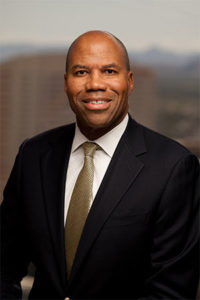 Bostock v. Clayton County, Georgia
Bostock v. Clayton County, Georgia
U.S. Supreme Court No:17-1618
June 15, 2020
Written by: Gordon Lewis
On June 15, 2020, in a landmark decision, the United States Supreme Court held that Title VII of the Civil Rights Act of 1964 – the statute that prohibits employment discrimination on the basis of race, color, religion, sex or national origin – also prohibits employment discrimination on the basis of homosexuality or transgender status. In a 6-3 decision, with Justice Gorsuch writing for the majority, the Court held that discriminating against an employee because of the employee’s sexual preference or transgender status necessarily discriminates against that employee because of the employee’s sex, and this discrimination is prohibited by Title VII.
The Court noted that Title VII makes it “unlawful…for an employer to fail or refuse to hire or to discharge any individual, or otherwise to discriminate against any individual…..because of such individual’s…sex.” Title VII is violated if an employee’s sex is the “but-for” cause of an adverse employment decision against the employee. Thus, with respect to a discharged employee, “if changing the employee’s sex would have yielded a different choice by the employer – a statutory violation has occurred.” The Court observed that discriminating against employees because of their homosexuality or transgender status therefore violates Title VII “because it is impossible to discriminate against a person for being homosexual or transgender without discriminating against that individual based on sex.”
As an example, the Court gave a hypothetical of an employer with two employees, both of whom were attracted to men. The employees were otherwise identical in all other material respects, except one was a man and the other was a woman. The Court stated that if the employer fired the male employee for no reason other than the fact that he was attracted to men, the employer is discriminating against that male employee for traits or actions that it tolerates in its female employees. In this circumstance, the employee’s sex would be the “but-for” cause of the discrimination: if you changed the employee’s sex from male to female, the attraction to men would be permissible.
The Court stated, “[a]t bottom, these cases involve no more than the straightforward application of legal terms with plain and settled meanings. For an employer to discriminate against employees for being homosexual or transgender, the employer must intentionally discriminate against individual men and women in part because of sex. That has always been prohibited by Title VII’s plain terms.”
In light of this ruling, if employers have not already done so, employers should revise their policies to make sure that sexual preference and transgender status are included as protected classes in the employer’s anti-discrimination policies. Employers will need to take steps to train employees that harassment based on an employee’s sexual preference or transgender status is now explicitly prohibited by Title VII, and employers should update any existing discrimination and harassment trainings to include sections and discussions on sexual preference or transgender status. And as always, employers will want to make sure that discipline decisions are based on objective performance standards, and that there is appropriate documentation and support for disciplinary actions employers seek to take with their employees.
Gordon Lewis has more than 25 years of experience representing public and private employers in all manner of employment issues, policies and practices. He defends employers against claims involving wrongful discharge, racial discrimination, sexual discrimination and harassment (including harassment based on sexual orientation), age discrimination, disability discrimination, civil rights violations, Family and Medical Leave Act, Unfair Labor Practice charges, and wage and hour claims.
In addition, Gordon represents public employers in due process termination hearings, and assists public employers in resolving claims relating to privacy rights, free speech, open meetings, public records, and employee due process. He has drafted and reviewed employment agreements, and has created policies for employers regarding sexual harassment, drug testing, medical leave and other employment issues.